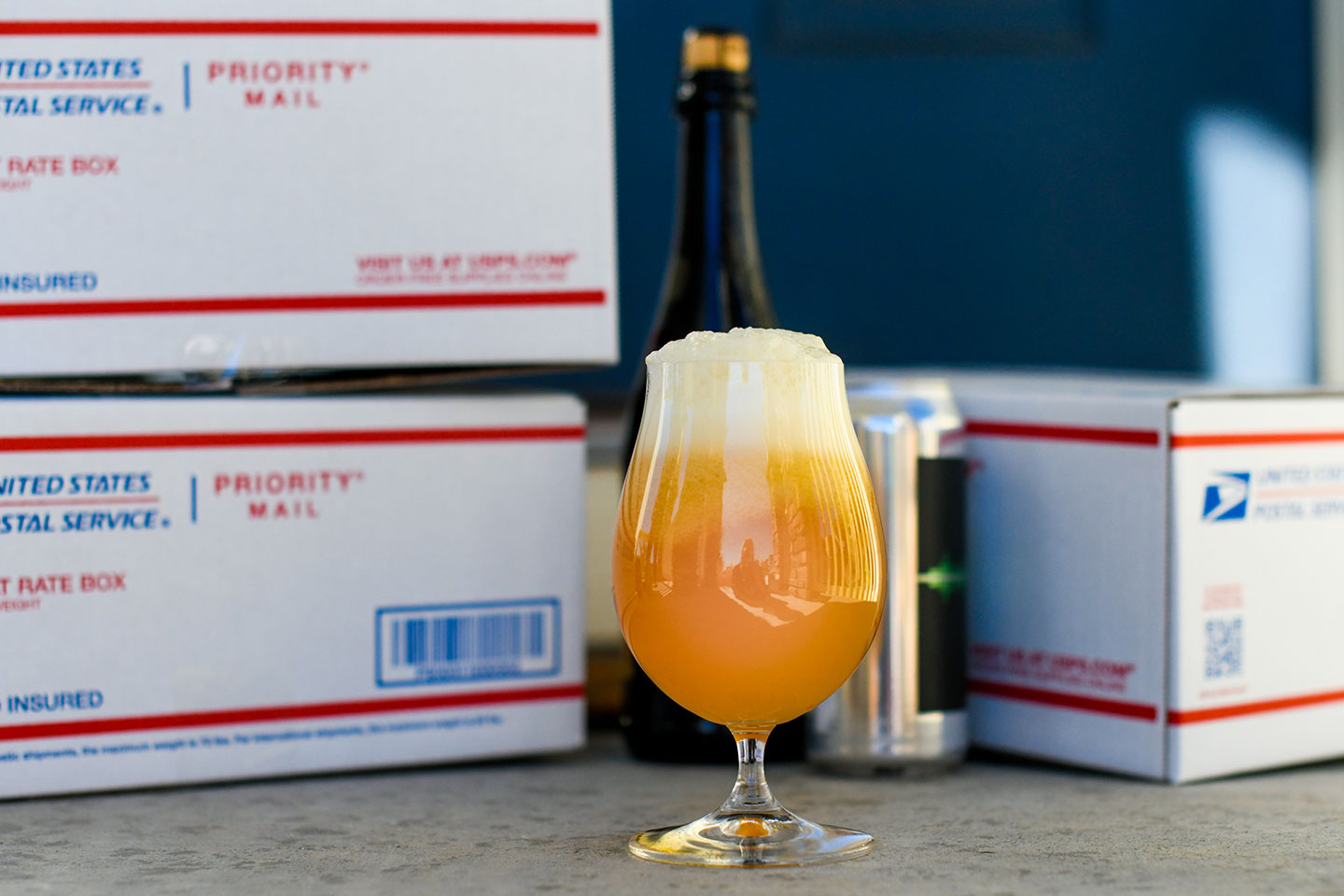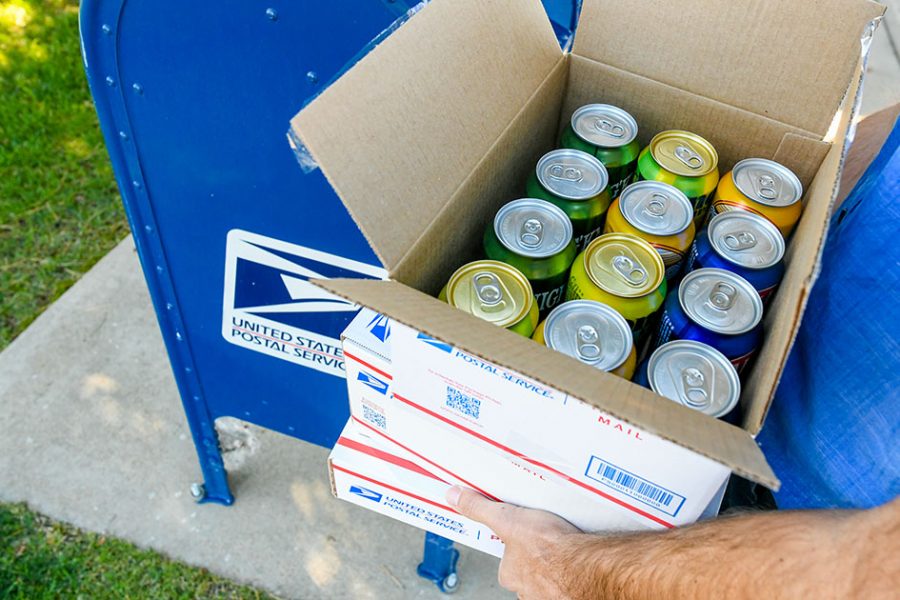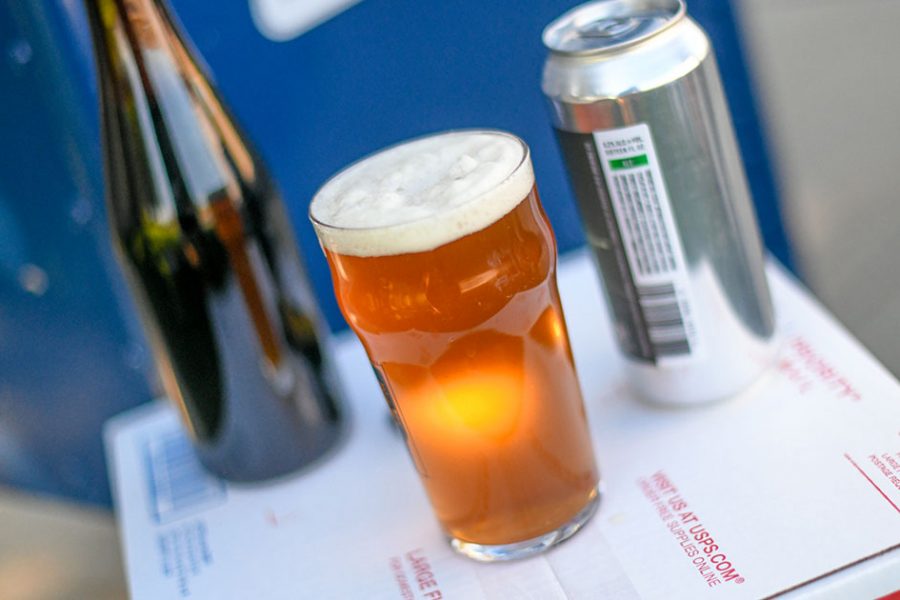
Did you know that the United States Postal Service (USPS) is not allowed to ship alcohol? Because of archaic laws, the USPS cannot deliver your favorite brew to your home – even in states where it is legal for private carriers to do so.
Good news: Key members of Congress, alcohol beverage producers, and postal unions are trying to fix this.
By Marc Sorini, Katie Marisic, and Pete Johnson
Shipping alcohol in the United States has long been problematic for individuals. Each state has its own laws that govern shipping of alcohol and even specify the types of beverages that can and cannot be shipped. For example, while many states have authorized US wineries to ship wine to in-state consumers, far fewer (11 plus the District of Columbia) authorize brewers in another state to ship beer to their consumers.
These state laws are exacerbated by the prohibition on mailing alcohol in all its forms through the United States Postal Service (USPS). Not surprisingly, this ban on alcohol shipments has its roots in Prohibition-era concerns that illicit shipments of alcohol beverages would undermine laws designed to enforce temperance.
The Prohibition experience leaves an indelible mark on US alcohol policy through its embrace of both federalism and states’ rights. In the decades prior to national Prohibition, many states enacted prohibition laws banning the sale of alcohol within their borders. Not surprisingly, thirsty consumers in “dry” areas and eager businesspeople responded by embracing direct-to-consumer shipping in the late 1800s and early 1900s. What’s more, certain (now defunct) legal doctrines embraced by federal courts at the time limited states’ authority to interfere with such shipments as long as the alcohol remained in its “original package” en route to consumers. Congress responded to these court-made legal obstacles by passing two laws—the Wilson Act (1890) and the Webb-Kenyon Act (1913)—designed to give states more authority to control the flow of alcohol into their borders than the courts were willing to allow.
If national Prohibition proved anything, it was that the United States was too diverse a country to regulate anything as socially sensitive as alcohol on a national basis. In repealing national Prohibition in 1933, the Twenty-first Amendment incorporated the language of the Webb-Kenyon Act and empowered states to regulate interstate commerce in alcoholic beverages. Since then, primary regulatory oversight of activities like shipping and delivering alcohol has been left to the states. Even today, while the federal government plays a role in regulating alcohol shipping, restrictions and privileges primarily flow from state law. As such, policies regarding the shipping of beer or homebrew will turn substantially on state-by-state laws, and therefore can vary widely from place to place.

Early Efforts
When it comes to beer, the policies of private carriers (e.g., FedEx and UPS) were for many years unclear, and it was something of a roll of the dice as to whether a shipment of beer would be accepted. Homebrewers, in particular, faced serious challenges in providing beer for competitions, which often utilize a central location to collect and judge entries. When a competition is on a national scale, the difficulties of physically getting competition entries to the judging location for those living hundreds or even thousands of miles away can be insurmountable.
In 2006, in an attempt to address and minimize these obstacles, particularly for homebrewers in the context of judged competitions, the Brewers Association (parent organization of the American Homebrewers Association) began efforts to legalize the shipping of beer through the USPS. Although it was recognized at the time that, even if successful, federal authority to ship beer was not a complete answer (most states prohibit the direct shipment of beer from out-of-state brewers and federal authority would not supersede state law), the thinking was, similar to the federal legalization of homebrewing in the late 1970s, that once shipping of beer for competitions was federally legal, state legislatures would be more willing to consider similar measures.
So began a multi-year effort in which Brewers Association staff corresponded and met with representatives of the USPS, the Department of Justice, members of the Congressional Small Brewers Caucuses, Congressional committee staff with jurisdiction over USPS, and individual Members of Congress, and drafted a variety of legislative amendments providing for the mailing of malt-beverage competition entries. Early approaches were focused on amending the postal statutes within the context of postal reform efforts that had been ongoing for many years and continue to this day. Unfortunately, the complexity of issues related to postal reform, particularly those concerning the future provision of pension and healthcare benefits for retirees, bogged down negotiations and legislative action.
As time went on, however, broader interest emerged to allow the mailing of alcohol, both as a direct-to-consumer play and as a source of revenue for the USPS. In 2012–13, multiple bills were introduced in Congress related to USPS commercial alcohol shipping, and it was at this point that the BA’s efforts expanded to encompass commercial as well as homebrewed beer. A legislative summary of the BA’s suggested draft legislation at the time of the 113th Congress (2013–2014) follows:
[The amended section would] enable the USPS to ship distilled spirits, wine, and beer in accordance with the laws of the state to which the items are addressed and received. Shipments that the Postal Service would be permitted to transport [beer, including] transfers between licensed businesses, shipments to consumers where authorized by state law, samples sent for judging at recognized home brewing and winemaking competitions, samples sent to private and government laboratories for tax classification, testing and analysis, and shipments for other lawful purposes. USPS would be required to issue regulations providing that distilled spirits, wine and beer is mailed directly to a person who is at least 21 years old and presenting a valid, government-issued form of identification at the time of delivery.
In April 2013, the USPS Shipping Equity Act (HR 1718) was first introduced in Congress by Representative Jackie Speier (D-Calif.) and has slowly gained traction and support in subsequent Congresses. As time passed, the demands for direct-to-consumer products grew and the legislation evolved.
USPS Shipping Equity Act of 2021
One of the unanticipated side effects of the COVID-19 pandemic was the shift in consumers’ sentiment for how they purchase beer and other beverage alcohol products. There has been a nationwide increase in consumer demand for alcohol to go, alcohol delivery facilitated by third party provider (TPP) apps like Drizly, and direct shipping of alcohol from produces to consumers.
84% of self-identified “regular craft beer drinkers” say they want to be able to legally purchase beer via DTC shipping to their home.*
82% of participants surveyed said that they are in support of giving the United States Postal Service the ability to deliver alcohol to 21+ adults in compliance with applicable state and local laws.**
To meet this growing demand, state and federal governments have been reviewing and changing outdated laws pertaining to beverage alcohol sales. The USPS Shipping Equity Act of 2021 is one piece of legislation that would help both consumers and brewers. Though the legislation only extends shipping to USPS in states where it is already legal for private carriers to ship, it would increase both the number of breweries (and other alcohol producers) that can ship and expand the number of consumers that those businesses can ship to. The current USPS Shipping Equity Act was put together with several key goals in mind.

Empower Consumers to Access Product from Beverage Alcohol Producers
Allowing the postal service to ship alcohol would likely have the biggest impact on small producers that do not currently have relationships with wholesalers or many retailers. These sales would not replace existing sales within the three-tier system, but they would provide businesses that are outside of the system with another avenue to get their product to consumers. Wine is currently legal to ship in 46 states plus the District of Columbia, yet widespread shipping has not negatively affected wine wholesale or retail sales.
With more than 9,000 craft breweries operating in the U.S. in 2021, there is a craft brewery within 10 miles of 85 percent of adults aged 21 or older. Roughly 40 percent of those breweries are taprooms and tasting rooms that sell most of their product directly to consumers, not through traditional methods. They account for the majority of growth in the brewing industry and have a positive impact on the communities in which they are located.
The USPS is set up to ship to and from rural locations in ways that private carriers are not. The USPS Shipping Act would create competition and potentially lower shipping prices for producers and consumers.
Create Additional Income for the USPS
Economists predict that the USPS Shipping Equity Act, if passed, would create an additional $180 million for the post office the first year it goes into effect. Labor unions that represent the USPS, including the American Postal Workers Union, have come out in support of the legislation.
Garner Bipartisan Support and Pass into Law
Any legislation that addresses the shipping of alcohol, both at the state and local levels, will likely see opposition from the wholesale tier and public health groups. The USPS Shipping Equity Act was crafted to address those concerns. Elected officials who crafted this legislation worked hard to ensure that the USPS Shipping Equity Act would complement state and local laws and not supersede state regulation. The legislation does not change federal excise tax collection, nor does it inhibit state or local authority in regulating beverage alcohol. It also provides strong safeguards such as identification checks to discourage underage consumption of alcohol by minors.
There are still opponents of the bill, but their opposition seems to be to all interstate shipping of beverage alcohol, an issue that should be addressed at the state level.
Despite the opposition, the bill still has growing bipartisan support with 32 cosponsors in the House (the largest number to date) and a recently introduced companion bill in the Senate. The original sponsors of the legislation Reps Jackie Speier (D-Calif.), Dan Newhouse (R-Wash.), and Senator Jeff Merkley (D-Ore.) are strong advocates in support of the legislation.
Practical Considerations
Passage of this legislation has now become the primary focus of BA efforts to allow shipping of beer through the USPS. The BA has advocated for passage of the legislation and created a grassroots page (craftbeer.com/news/usps-shipping-equity-act) that can be used by both producers and consumers to contact their elected officials in support of the USPS Shipping Equity Act.
The BA hopes that passage of the USPS Shipping Equity Act will be one of many steps to allowing alcohol beverage producers to ship their product, a win for both consumers and producers.
Not surprisingly, trade associations representing wholesalers and traditional “brick-and-mortar” retailers oppose the USPS Shipping Equity Act. While such groups possess a clear self-interested motive in preventing brewers to sell beer directly to consumers, these groups frame their arguments in terms of alcohol policy and the need to protect the public against the evils of underage or excessive alcohol consumption. The BA does not believe these objections withstand closer scrutiny.
One common refrain of opponents is that the legislation would undermine state and local efforts to regulate alcohol. This objection, however, entirely ignores that the USPS Shipping Equity Act does not preempt or repeal any state or local laws. A state would remain free to prohibit or limit alcohol shipments. Under the Act, the USPS would only be authorized to ship into and within states where legal under state and local law. This objection, then, is premised on a misreading of the proposed statutory changes.
Some critics claim that the Act would interfere with state efforts to collect alcohol excise taxes, but the proposed legislation explicitly requires that all USPS shipments comply with state law. Furthermore, the bill would explicitly grant the USPS the authority to require shippers to submit information demonstrating the pre-payment of state excise taxes on shipments. More broadly, following a recent Supreme Court decision allowing states to collect sales taxes from out-of-state sellers, the notion that states cannot collect taxes from out-of-state sellers is completely anachronistic.
A third argument is captured by the clever but misleading sound bite that “your mailman should not be your bartender.” No one, of course, expects US postal workers to act as bartenders, just as no one looks at a grocery store clerk who can sell you beer as a bartender. What makes this objection more incredible is that many of the same groups that oppose the USPS Shipping Equity Act, and interstate shipping by brewers in general, support the local retailers’ ability to sell to remote customers through services such as Uber and Door Dash, or via delivery by a store clerk. How these delivery methods are appreciably safer and more responsible than shipping via a US postal worker is never explained. Not coincidentally, restricting delivery to local retailers ensures that beer passes through and is marked up by established wholesaler and retailer businesses.
Moreover, as private carriers like FedEx and UPS already deliver wine in many states, as well as beer and liquor in the states where permitted, critics need to explain why US postal workers are uniquely unable to competently and safely transport and deliver alcohol. Indeed, from a regulatory standpoint, one would expect delivery via government employees to be at least as likely to comply with the law as delivery via private businesses. The premise that government can be trusted to handle alcohol beverages more responsibly than private businesses is the central premise of the “control” theory of alcohol regulation embraced by many U.S. states. And if the USPS makes mistakes, the Shipping Equity Act explicitly gives states, Indian tribes, and local authorities the ability to sue the USPS in federal court.
The BA recognizes that beer is not milk, chocolate, or some other non-intoxicating commodity. Of course, some regulatory oversight is required to prevent deliveries to minors. But private carriers have successfully delivered wine across the country for decades. There is no reason to think that the US Postal Service cannot accomplish the same thing.
To learn more about the USPS Shipping Equity Act, visit CraftBeer.com.
You can take action today, by asking Congress to pass the USPS Shipping Equity Act.
Footnotes
* According to the Direct-to-Consumer Beer Shipping Report, commissioned by Sovos ShipCompliant and the Brewers Association.
**According to the Harris Poll commissioned by the Brewers Association.
* * *
Marc Sorini, Katie Marisic, and Pete Johnson are the Brewers Association’s general counsel, director of federal affairs, and state & regulatory affairs manager, respectively.




Share Post